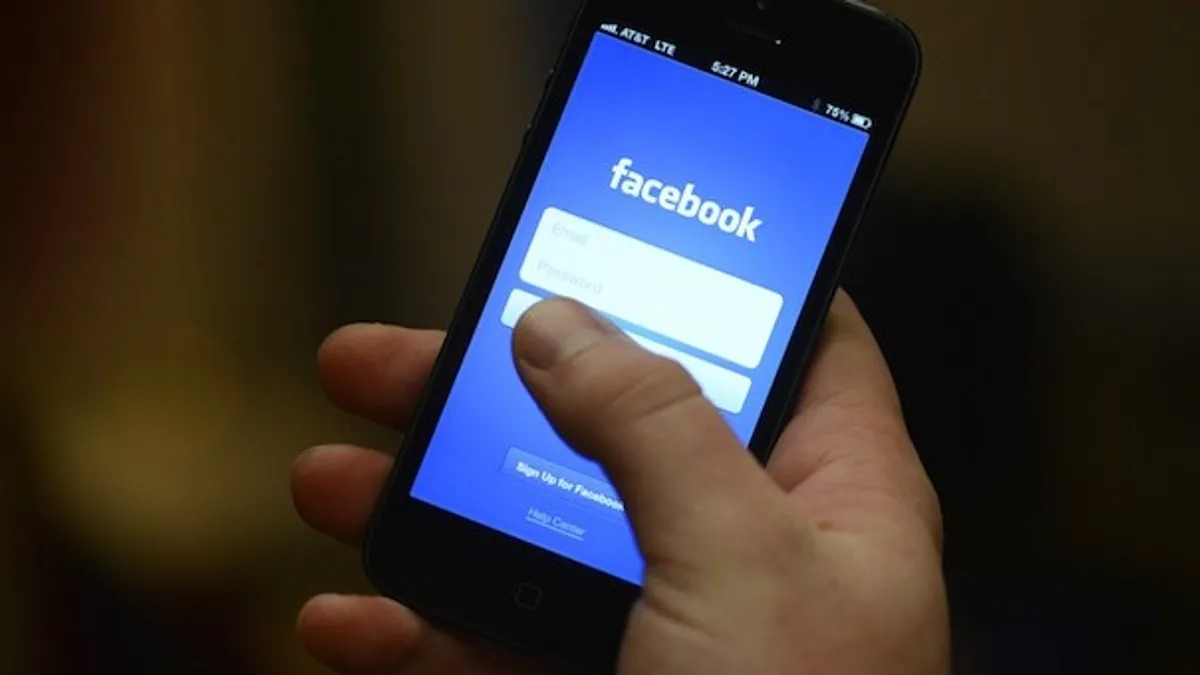How important is Facebook's advertising platform to online brands and retailers? One potential clue can be found in last year's ad boycott by companies frustrated with Facebook's handling of misinformation and hate speech.
According to previously unpublished data from Forrester provided to Retail Dive, withdrawing advertising did not negatively affect most participants studied by the firm.
Of 43 publicly traded companies examined by Forrester that participated in the Facebook boycott during the summer, only seven saw their revenue decrease in the third quarter as compared to Q2, according to the findings by Sucharita Kodali, vice president and principal analyst with Forrester. In that cohort, the other 36 companies' revenue increased quarter to quarter.
Comparing Q3 2020 to Q1, 34 of the companies' revenue increased. At the same time, revenue decreased year over year for many of those companies in Q3, but Kodali attributed that to the impact of COVID-19 on corporate revenues.
The boycott on buying advertising on Facebook gained steam last July and included brands as disparate as Adidas and Birchbox, Best Buy and Clorox. Led by civil rights groups, the boycott was an effort to pressure the social media giant, and one of the largest digital advertising machines in existence, into cracking down on hate speech and misinformation on its platform.
Facebook together with Google combined were expected to control more than 60% of the digital advertising market last year, according to estimates from eMarketer, which terms the two platforms a "duopoly" in the market. In 2019, Facebook made just shy of $70 billion from advertising revenue.
Forrester's Kodali said in an interview that advertising on Facebook, along with Google, has the "veneer of being cost effective" for e-commerce players. However, she added, "To this day, very few people have dissected what is truly incremental versus what would have happened anyway." That means Facebook advertising gets credit for online transactions that may well have happened were ads not purchased on its social platforms.
"That's why I thought this July boycott was so interesting. Very, very few companies have been bold enough to just completely shut off Google or Facebook to see the impact on their businesses," Kodali said. "And that was one time that they did all collectively do so."
Teasing out the precise effect is difficult because of the pandemic's widespread impact across the economy in 2020, which dragged down year-over-year revenue for the boycott participants Kodali studied. But those results may not have been as bad as might be expected, given that those companies dropped a major advertising channel.
"The fact that they did okay, and there was literally no negative impact, they did no worse than their worst timeframes, to me suggests that the incremental lift [i.e., from Facebook ads] is very, very limited," Kodali said.
That could embolden more companies when it comes to Facebook advertising in general, beyond the issues raised by the boycott. "When you look at the overall arc of a company, it's like, 'I've spent 50% more this year on Facebook, but my revenue has not grown any more than what it normally would,'" Kodali said. "What's the value that it's really adding?"
Meanwhile, the boycott's impact on Facebook — which makes almost all of its revenue from advertising, including for its namesake and Instagram platforms — may have been limited as well. In July, when much of the boycott took place, the tech giant's ad revenue grew 10%, Facebook CFO Dave Wehner told analysts last summer, according to a Seeking Alpha transcript.
















